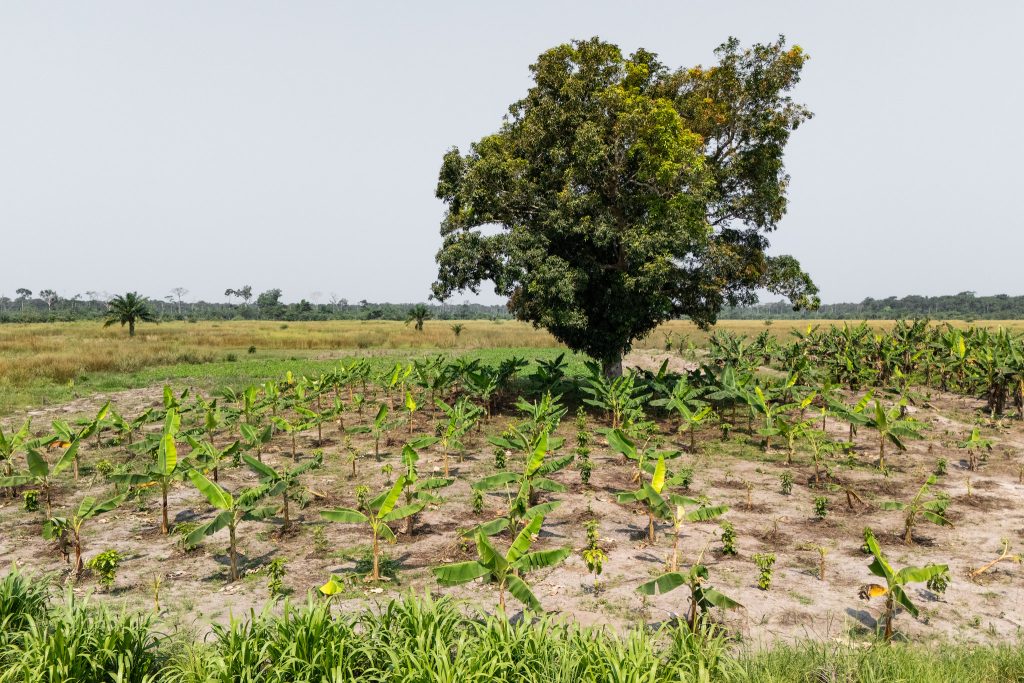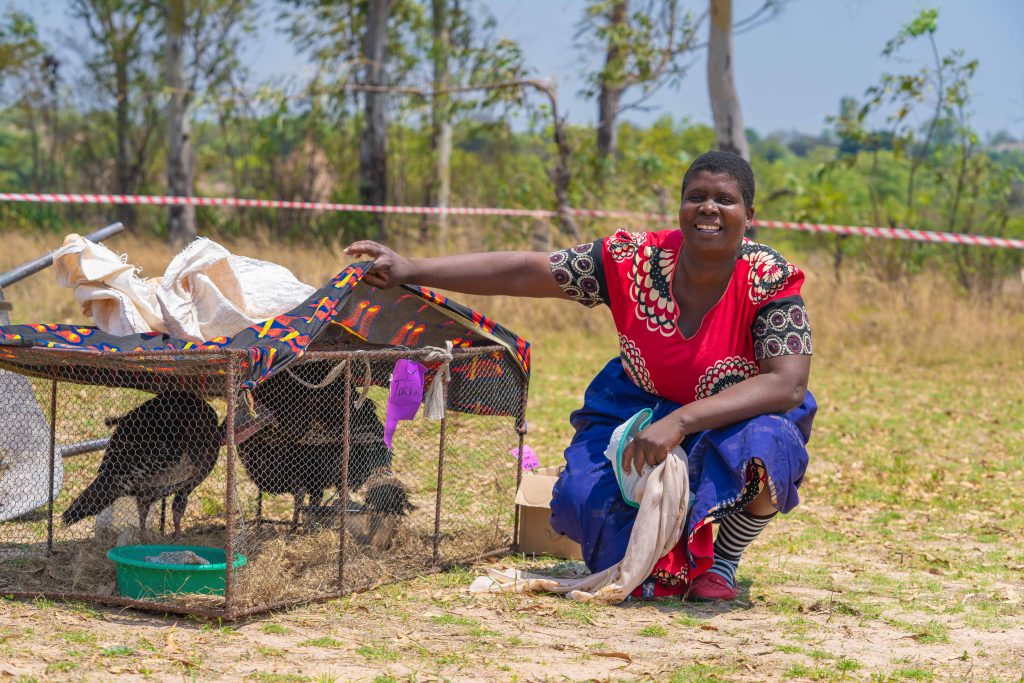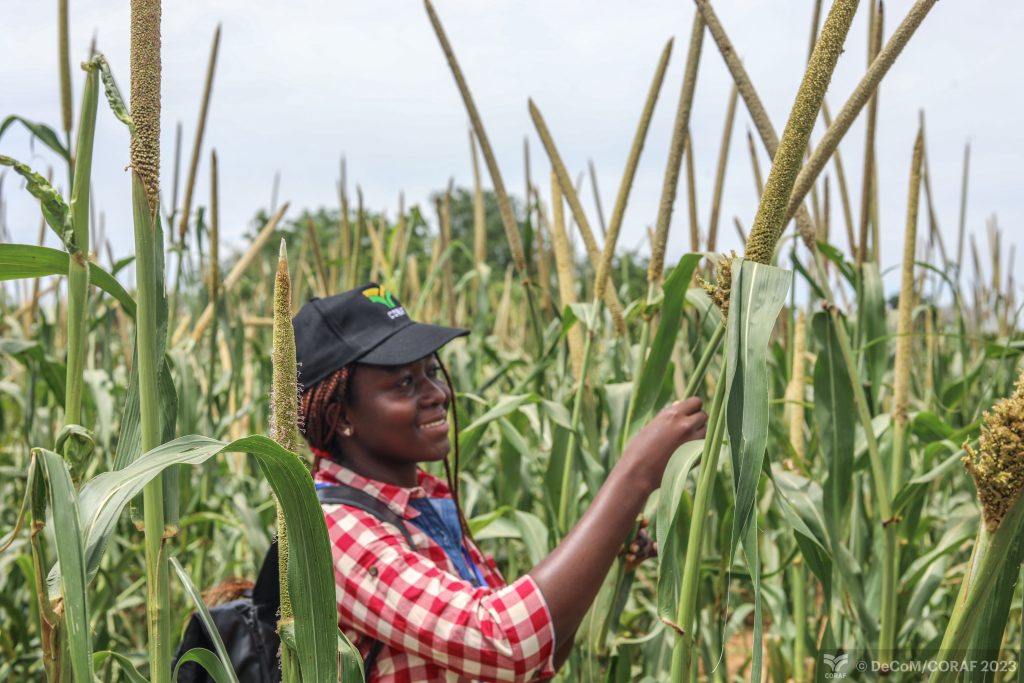What is the contribution of organic farming to sustainable development?
Introduction
The Long-term Farming Systems Comparison in the Tropics (SysCom) programme aims to enhance scientific and practical knowledge on the potentials and limitations of different agricultural production systems in tropical regions, thereby contributing to sustainable agriculture. The programme generates robust, long-term scientific evidence primarily from Long-Term Experiments (LTEs) that compare organic and conventional farming systems in Kenya, India, and Bolivia.
Initiated between 2007 and 2009 in collaboration with local partner institutions, the LTEs monitor long-term agronomic, economic, and ecological changes, capturing how different production systems respond to evolving environmental and socio-economic conditions. In Kenya, the LTEs compare conventional and organic systems under two input levels (high and low) within a three-year, six-season crop rotation involving maize, beans, vegetables, and potatoes at two sites (Chuka and Kandara) representing high- and low-potential agroecological zones.
To ensure that research directly benefits local farming communities, the LTEs are complemented by a Participatory On-Farm Research (POR) component. The POR promotes co-creation and testing of innovations and management practices adapted to farmers’ realities, fostering adoption and impact at the grassroots level.
From 2007 to 2022 (Phases I – IV), SysCom established itself as a leading research programme in sustainability science within tropical contexts. The project sites are now fully functional, with the infrastructure and partnerships necessary to support long-term research and development activities. Through the POR approach, SysCom has built strong collaborations with local farmers and stakeholders, creating an enabling environment for innovation and knowledge exchange.
The programme’s findings have been widely disseminated through over 50 peer-reviewed publications, international conferences, policy dialogues, and farmer field events. Outputs are publicly accessible through the programme’s website, with most publications available in open access. Additionally, SysCom has significantly contributed to capacity building, training more than 65 students at BSc, MSc, and PhD levels across various research areas.
In Phase V (2023 – 2026), SysCom focuses on five thematic areas implemented across the three partner countries, supported at programme level:
- Profitability and resilience
- Soil fertility and health
- Climate change adaptation and water management
- Role as a multiplier (knowledge dissemination and scaling)
- Institutional sustainability
Each country team tailors these focus areas to their specific biophysical and socio-economic contexts, ensuring methodological relevance and resource efficiency. Phase V represents a pivotal stage for consolidating scientific achievements, strengthening institutional capacity, and ensuring the long-term sustainability and visibility of the SysCom trials.
By the end of Phase V, SysCom envisions three independent, nationally led research and dissemination sites each supported through a mix of third-party funding and national institutional commitments. These sites will continue to serve as platforms for research, training, and policy engagement adapted to their regional contexts. National partner institutions in each country (e.g., icipe in Kenya) have expressed commitment to sustaining the SysCom sites beyond Phase V, with FiBL maintaining collaborative research and advisory roles to ensure scientific integrity and continued international linkages.
A major outcome of Phase V is the development of country-specific sustainability concepts to embed SysCom within national institutional frameworks. In Kenya, this includes integrating SysCom within icipe’s and other research partners’ strategic agendas, thereby enhancing its visibility, funding prospects, and alignment with national and regional agroecology initiatives. Alongside institutional integration, SysCom continues to prioritize human capacity development, supporting young researchers through graduate and postgraduate training to sustain the next generation of agroecology scientists.
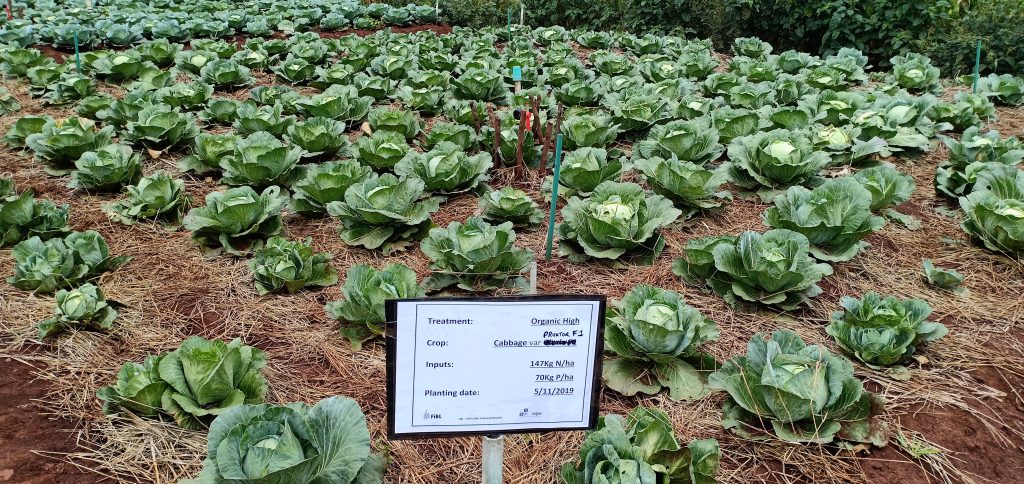
Photo by the SysCom Kenya Project
Aim
The Long-term Farming Systems Comparison in the Tropics (SysCom) project aims to generate robust, long-term scientific evidence on the performance, potentials, and limitations of different agricultural production systems particularly organic and conventional under tropical conditions. Through comparative long-term experiments (LTEs) and participatory on-farm research (POR), SysCom seeks to enhance understanding of how farming systems influence productivity, soil health, biodiversity, climate resilience, and livelihoods, thereby contributing to sustainable, resilient, and inclusive food systems in the tropics.
Key Objectives
- Scientific Evidence Generation: To produce long-term, comparable scientific data on the agronomic, ecological, and socio-economic performance of organic and conventional farming systems across tropical regions.
- Soil Fertility and Ecosystem Health: To evaluate the impacts of different farming systems on soil fertility, nutrient cycling, biodiversity, and ecosystem services critical for sustainable agricultural productivity.
- Climate Change Adaptation and Mitigation: To assess how different production systems contribute to climate resilience, including their effects on soil carbon sequestration, water use efficiency, and greenhouse gas emissions.
- Profitability and Livelihood Resilience: To analyze the economic viability and risk resilience of organic versus conventional systems, identifying pathways to improve farm income, input efficiency, and food security for smallholders.
- Participatory Innovation and Knowledge Exchange: To co-create, test, and disseminate context-appropriate agroecological innovations and management practices with farmers through participatory on-farm research (POR) platforms.
- Policy Influence and Institutional Integration: To provide evidence that informs agricultural policies, curricula, and development programs supporting agroecological transitions at national and regional levels.
- Capacity Building and Sustainability: To strengthen the scientific and institutional capacities of partner organizations and train the next generation of researchers in agroecology, ensuring long-term continuity of SysCom research platforms.
Value of Alignment with the Agroecology TPP
Aligning with the Agroecology TPP adds value to the SysCom project in the following ways:
- Global collaboration and visibility: Integration into AE-TPP’s global community will elevate SysCom’s profile and facilitate collaboration with international research, policy, and development partners.
- Knowledge and methodological exchange: Participation in AE-TPP’s Communities of Practice and engagement landscapes will enhance SysCom’s access to innovative tools, frameworks, and methodologies for performance assessment and agroecological metrics.
- Science-policy influence: Alignment will strengthen SysCom’s policy advocacy role in Kenya and the wider region, amplifying its evidence base within global policy dialogues on sustainable agriculture.
- Capacity and impact: AE-TPP’s multi-actor network will support icipe’s mission to build regional scientific capacity, enhance dissemination, and position SysCom Kenya as a continental hub for agroecology research and learning.
SysCom Kenya will add significant value to the AE-TPP by contributing nearly two decades of robust, field-based evidence on the performance of organic and conventional farming systems under tropical African conditions. Its unique combination of long-term experiment trials (LTE) and participatory on-farm research (POR) provides real-world insights into soil health, biodiversity, productivity, and socio-economic resilience, core pillars of agroecological transformation.
By serving as a living laboratory for co-creation of knowledge, SysCom Kenya can enrich AE-TPP’s global evidence base, metrics, and methodologies for assessing agroecological performance.
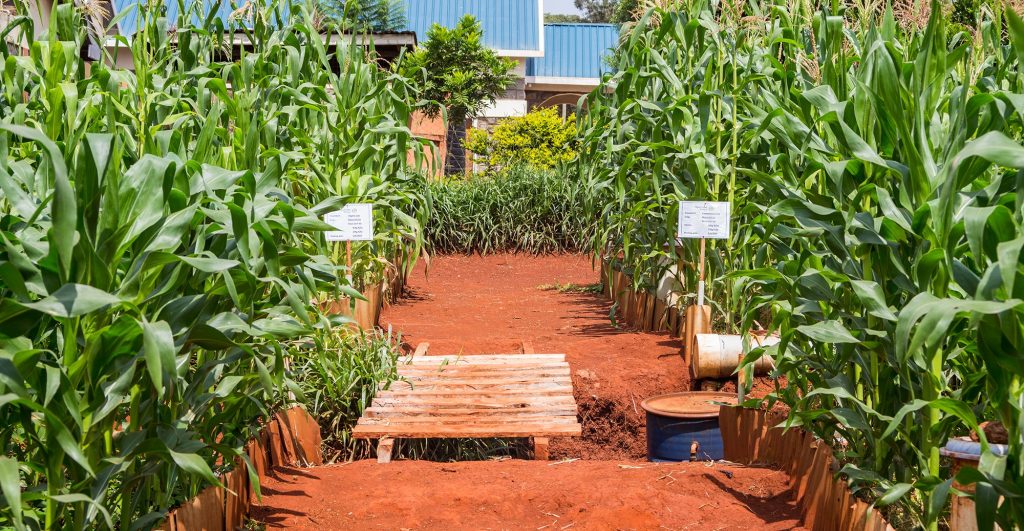
Photo by the SysCom Kenya Project
Project Scope and Timeline
The project is implemented across 3 tropical countries; Bolivia, India and Kenya
Timeline
- Phase 1: 2007 – 2010
- Phase 2: 2011 – 2014
- Phase 3: 2015 – 2018
- Phase 4: 2019 – 2022
- Phase 5 (current): 2023 – 2026
- Phase 6 (upcoming): 2027 – 2030
Modality
The SysCom Kenya project applies a dual, complementary implementation approach combining Long-Term Experiments (LTEs) and Participatory On-Farm Research (POR). The LTEs, located in Chuka and Kandara, form the scientific backbone of the project and generate longitudinal data comparing organic and conventional systems under both high- and low-input management. These trials assess a range of agronomic, ecological, and socio-economic indicators including yield, soil fertility, biodiversity, greenhouse gas emissions, and profitability.
The POR component translates research into practice through farmer-led innovation and co-learning. Farmers, extension agents, and researchers jointly identify local challenges, test context-specific agroecological solutions (e.g., composting, botanical biopesticides, crop diversification, and soil and water conservation), and evaluate their performance under real field conditions. This participatory approach ensures local ownership, gender inclusion, and knowledge sharing through field schools, demonstrations, and policy dialogues.
Implementation is guided by a multi-stakeholder partnership model led by FiBL (phase I – current phase V) in collaboration with, icipe (phase I – current phase V implementing partner and lead from 2027 – phase VI), KALRO, KOAN, KIOF, CIAT formerly TSBF, universities, and county governments. The project integrates postgraduate training, capacity building, and policy engagement to ensure scientific excellence and societal impact.
Expected outcomes include:
- Comprehensive, long-term datasets on productivity, profitability, soil health, biodiversity, and resilience under organic and conventional systems.
- Enhanced farmer adoption of agroecological innovations and improved livelihoods.
- Strengthened national and regional research capacity on sustainable agriculture.
- Positioning of SysCom Kenya as a regional centre of excellence and learning hub for agroecological transitions and policy influence in Africa.
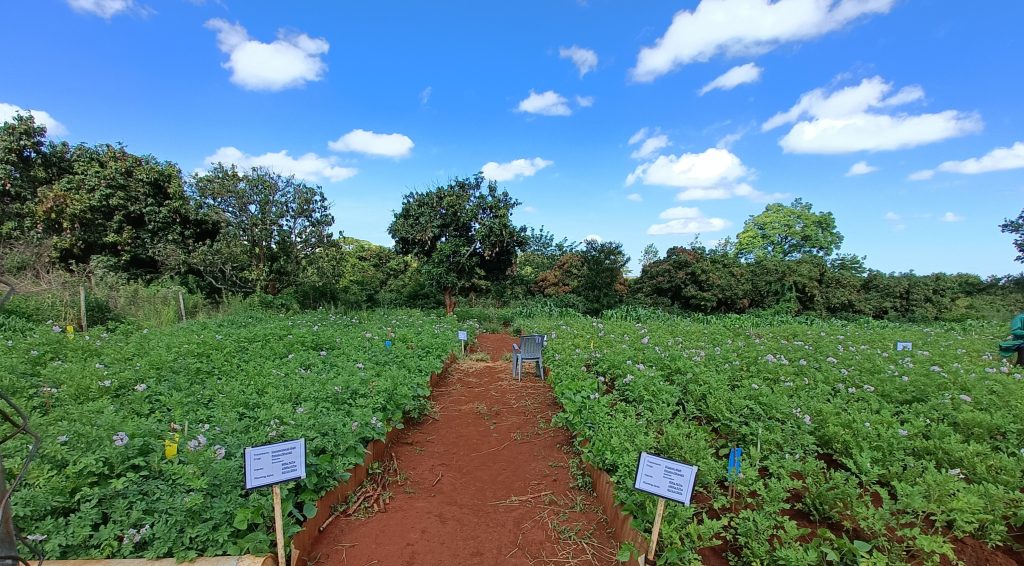
Photo by the SysCom Kenya Project
Partners
- International Centre of Insect Physiology and Ecology (icipe) – Main implementing partner
- Kenya Agricultural & Livestock Research Organisation (KALRO)
- Kenya Institute of Organic Farming (KIOF)
- Kenya Organic Agriculture Network (KOAN)
- Kenyatta University
- Research Institute of Organic Agriculture (FiBL)
- Tropical Soil Biology & Fertility Institute of CIAT (TSBF‑CIAT)
Contact
Dr Edward Nderitu Karanja, icipe: ekaranja@icipe.org
Related Domains
This project is linked to the Soil health including land restoration and avoiding degradation domain of the AE-TPP
Donors
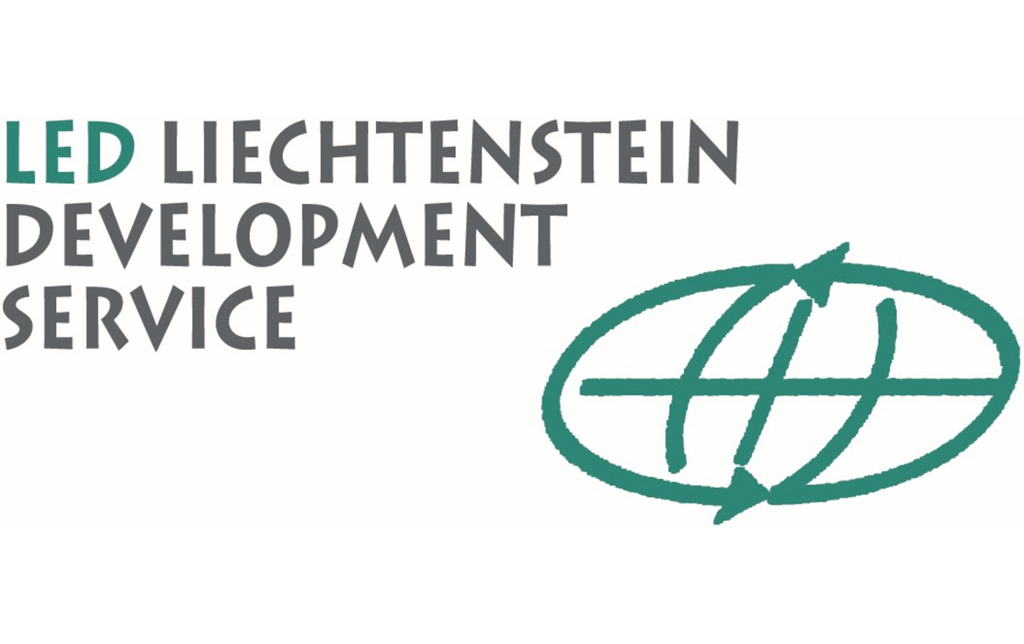
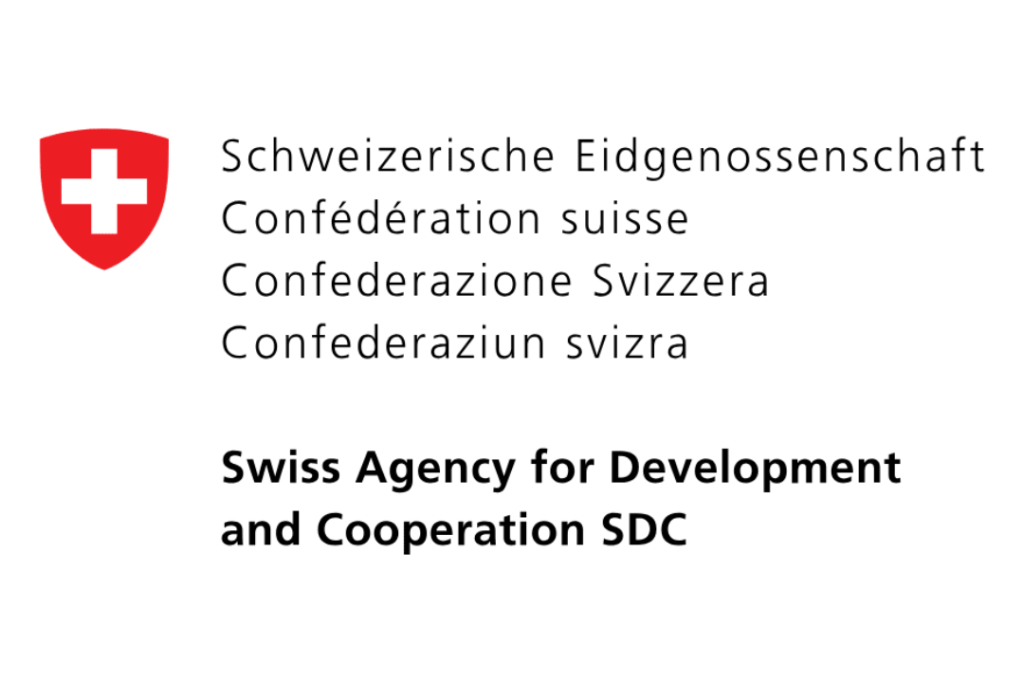
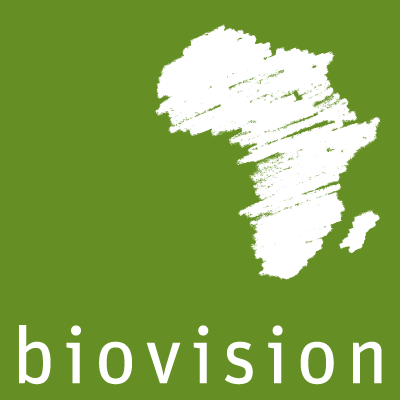

The SysCom project is generously funded by the Liechtenstein Development Service (LED), Swiss Agency for Development and Cooperation (SDC), Biovision Foundation, and the Coop Sustainability Fund



